Are Dyslexia Advocates Misunderstood?
I don’t know if it is because it’s the end of the year and I am a little on the burnt out side or what, but I am a little sensitive right now. So, when I received the following reply to a blog post (For Those with Dyslexia, Whole Language is Not a Strategy) I felt compelled to respond. I thought I would share it because I know the poster is not the only one who thinks I should tone it down; however, I don’t think my tone is particularly ‘up.’ But I did think it was important to share what the education community may think about what we (I) do as an advocate/s.
From Anonymous (She included her name, but I will keep it anonymous here.)
Dear Dr. Sandman-Hurley,
I just want to encourage you to be gracious to our teachers. This same teacher all on the same day may have tried to not only find “parent-friendly” (i.e., for those who are not educated in the field of education) helps for the parent whose child has dyslexia, but also for a parent whose child has autism, and a parent whose child has mild-hearing loss, and a parent whose child has ADHD (under OHI minor), and the parent whose child has mild TBI…the list could go one… in addition to keeping up with the state or district test prep or testing requirements, gathering materials for lessons, monitoring behavior issues, monitoring recess or lunch, attending a grade-level meeting during the planning period, as well as teach lessons for the day…all the while trying to maintain his/her composure when dealing a with a sick family member or other personal issues. This is the case even in a “district that knows better.”
To this teacher’s defense, please remember that universities that have been accredited to license teachers with the mild-moderate license train teachers on all 13 federally identified special education categories not just SLD, which includes conditions such as perceptual disabilities, brain injury, minimal brain dysfunction, dyslexia, and developmental aphasia (dyslexia is just 1 of 5 sub-disabilities listed in this 1 federally identified category). And, in regard to universities, it might be advantageous to remind your followers that universities are accredited through SPAs (and IDA is not one of them) and CAEP. Not all SPAs isolate dyslexia, even though some state agencies do. Keep in mind that, unless the IS in the school is a LLT or has Wilson, Orton-Gillingham, or other training specific to dyslexia, it’s truly unreasonable to expect teachers to be experts in all 13 categories and all their respective sub-disabilities. So, the “parent-friendly” Good Reader resource this teacher sent home DOES have several evidence based approaches for students with SLD – a category on which this teacher was most likely trained.
My intent is not to minimize dyslexia (or any disability), but as a fellow teammate in the field of education, I want to graciously and kindly encourage you to be a part of the solution and more positively convey your perspectives…and to do what you can to uplift and edify our public school teachers in public forums.
My response
Dr. Anonymous:
Thank for you reaching out to me and thoughtfully expressing your concerns. I am going to assume your post was in response to the blog I posted about Reading Recovery. I totally agree that I should be gracious with teachers and I appreciate the tough position they are put with little to no training about dyslexia, yet they are expected to understand how to help everyone. Before I go on, you should know that almost all of our staff at DTI are teachers, my mother-in-law was a special education teacher for 30 years and Tracy’s husband is a fifth grade teacher. In fact, many of our clients’ parents are teachers. So, we get it, we really, really get it. That is why you would be hard-pressed to find an article that I wrote where I derided or blamed a teacher You won’t even find evidence of this in one IEP that I have attended. In fact, I teach teachers at the graduate level, so I know that the universities are failing them. If there is blame to be had, the universities should shoulder it for being irresponsible and not acknowledging the research that could help 20 % of the population. Now compare that to the 2% of the population that autism affects, yet there is tremendous training there.
The specific blog post you responded to was in response to a large school district, which I have worked with for a long time, sending a parent reading recovery strategies after an official diagnosis of dyslexia was presented to them. This is a district that knows better, but did not respond better. Additionally, nowhere in this article did I attack or be ‘ungracious’ to a teacher. I was dissecting the absurdity of the strategies for a student with dyslexia. The resource that was sent home is not an appropriate remediation for a child with dyslexia, and it is my job as an advocate, to make sure that child is not wasting his precious time when the appropriate remediation has been identified. The teacher does not have to be an expert, but the school district does have to provide the appropriate remediation either at school or outside of school.
As far as being part of the solution and being uplifting, we provide training to teachers every single day and they thank us profusely because someone finally explained to them what dyslexia really is and how to help. On the flip side, I am part of solution for parents who are hitting brick walls in IEPs every single day. My tone may not resonate with everyone, but that is okay with me, because for those who it does resonate with, I am here to help whether you are a teacher or a parent. Additionally, we will be presenting at the International Literacy Conference (ILA), to teachers, in July and I am pretty sure they will walk away knowing that I believe in them and their motivation to help these kids. After all, my own son is in the ‘district that knows better’, so I must have some confidence in them, right?

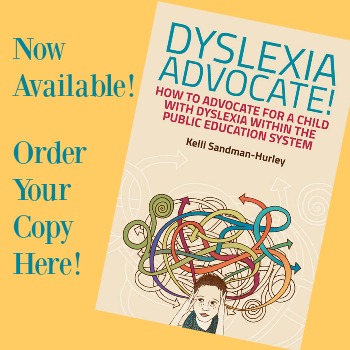
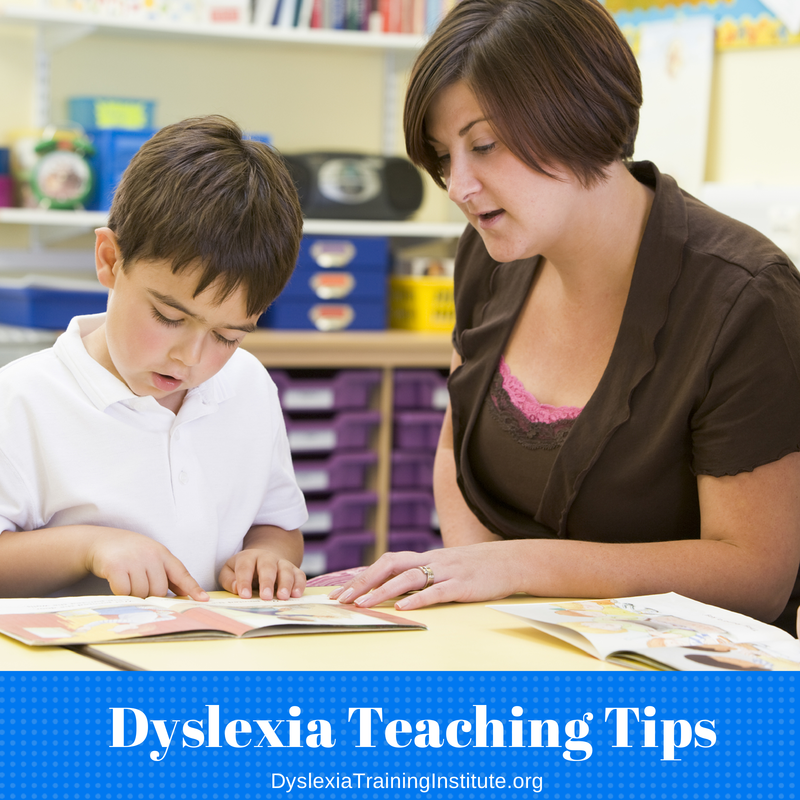
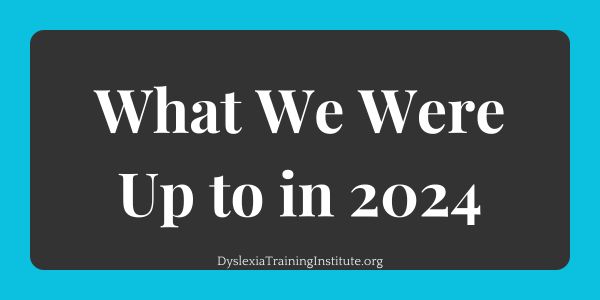
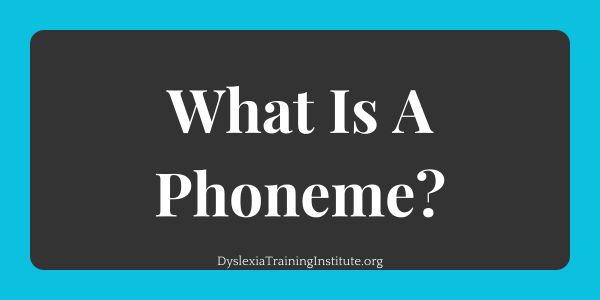
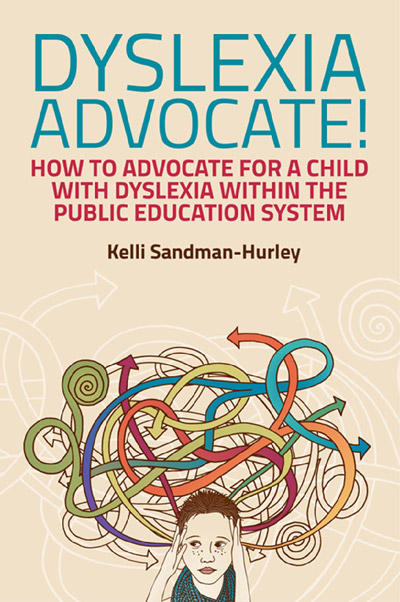
I can appreciate Anonymous’s response because it highlights that teachers are pulled in many different directions. But I would remind him/her that there should be someone, somewhere in a school who can accurately define dyslexia and teach that child to read! Saying that teachers have too much going on to know about dyslexia and what to do about it is an excuse. The American Academy of Pediatrics says that 80% of all SLDs are dyslexia. So if teachers were not taught – yes it is the university’s fault. But a few hours of reading on dyslexia would do their students a world of good.
I’m a Special Education teacher who is interesred in enrolling for the class: What is Dyslexia? An In Depth Look. How many Continuning Education hours are allotted for this class?
Thank you for writing this. I am a dyslexia specialist and the program coordinator at our private school that provides intervention for LD kids. It is a new program and although I have been a therapist for 6 years this is the first time I have a full time position at the school. I am a parent of two dyslexic kids, so I know the pain parents and students go through. This week was especially hard because my one administrator who believes in me told me that one of the staff didn’t want to seek my advice because she feels when I talk to her I lecture her… this deeply saddens me. One because she feels she can’t come to me but more that she feels bad about her teaching practices after I speak to her and give her basic advice. She feels she is a professional and that she shouldn’t be lectured but I am an advocate and if she doesn’t know how to help the child what am I supposed to do. Sit there and let her provide the wrong or detrimental treatment. I am really caught between rock and a hard spot. It makes me feel hurt and frustrated. I am thankful that it isn’t only me. I was starting to question what I was doing. I guess if there is others out there that are treated like me then maybe it isn’t just me. I get so angry at the system that puts out unqualified teachers and then they expect a 1 hour training to help them. It is so frustrating and I guess that passion spills over to my conversations. I don’t know what to do. But it is hurtful. Any suggestions?